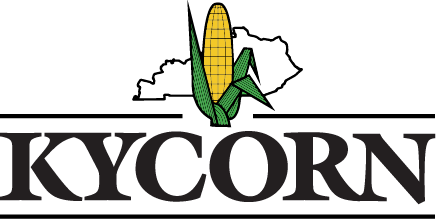(Eastwood, Kentucky) – An important bill introduced this week in the U.S. House of Representatives, which may soon play a vital role in addressing environmental issues while supporting Kentuckians in rural communities, is being buoyed by support from a congressional member from the Bluegrass state.
Rep. James Comer (R-KY-01) signed on as cosponsor of the Next Generation Fuels Act of 2021, HR 5089. Rep. Cheri Bustos (D-Ill-17) introduced the bill which would transition gasoline and vehicles to low-carbon, higher-octane fuel and reduce greenhouse gas emissions (GHG) in the transportation sector by taking advantage of the benefits of higher ethanol blends.
The bill would also increase the demand for corn ethanol, which will support corn growers in Kentucky and rural economies in the state.
“We appreciate Reps. Bustos and all of the co-sponsors of this bill,” said Kentucky Corn Growers Association President Richard Preston. “As Kentuckians, we are particularly proud of Rep. Comer for his vision and leadership on this bill. Thanks to these members of Congress, we will bolster rural communities in Kentucky and across the county, while contributing to greenhouse gas emissions reductions in transportation.”
The bill would require that automakers phase in higher levels of clean, low-carbon octane by model year 2026. The higher the octane, the more efficiently the engine uses energy. As a clean octane standard, the bill requires that sources of additional octane result in at least 40% fewer GHG emissions than unblended gasoline and sets new limits on toxic hydrocarbon aromatics.
These requirements will reduce GHG and tailpipe emissions to build on the progress already made to lower emissions with cleaner renewable fuels. Through advanced engine design features that take advantage of this new fuel, automakers will be able to significantly improve vehicle fuel efficiency.
Corn ethanol, like that produced in Hopkinsville, is an efficient low-carbon octane source, providing the greatest fuel efficiency gains at the least cost to drivers while displacing the most toxic components of gasoline. Higher octane levels and vehicles designed and warranted for these fuels would support ethanol blends up to 30%.
“Rep. Comer and his colleagues were looking at the big picture on this issue,” Preston said. “They understand that we need to address issues around clean air and climate change, while helping corn growers and rural communities economically as they navigate a global pandemic.”
The bill, which is still being considered in the House Energy and Commerce Committee, will need to pass the full House and Senate and be signed by the President before becoming law. More information on the benefits of low-carbon, high-octane fuels and NCGA’s support for a low-carbon octane standard can be found at ncga.com/octane.

